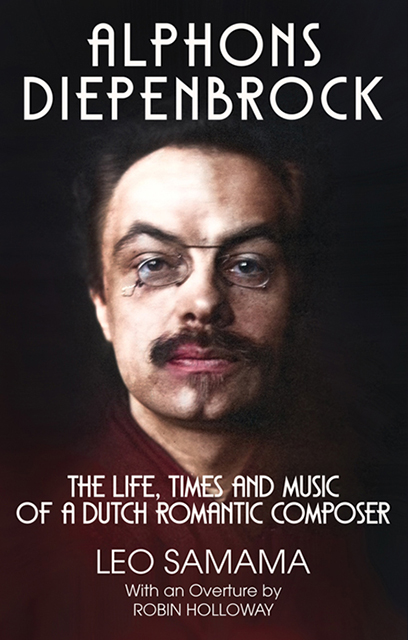Summary
In June 1928, De Nieuwe Gids published an article on Diepenbrock by his wife Elisabeth, written in response to two 1926 surveys by J. C. Hol and Willem Pijper. Five years after Diepenbrock's death, both Pijper and Hol made more in-depth analyses of both his character and his work, at the same time also attempting to fathom the man behind the composer. Pijper regarded Diepenbrock as a prism with three faces: the philologist, the musician and the Catholic. Hol essentially took the same approach, but also felt that a personal and psychological analysis of Diepenbrock was necessary. In his view, Diepenbrock was seriously held back by his work teaching classics – even though teaching, being his main source of income, did not ‘occupy the same position’ in his life as music or Catholicism. ‘Both of the latter were primary, philology was secondary’, in Hol's opinion; ‘Philology is not an innate quality in and of itself. It is a profession’. Thus it was all the more regrettable, Hol contested, that Diepenbrock's special qualities as a philologist and classicist stood in the way of his ability and willingness to accept a position in music, his true calling.
Elisabeth Diepenbrock pointed out the futility of viewing her husband as a ‘composite’, saying that ‘the fundamental unity within any conception of life should remain intact’. For it is precisely the interplay between these elements – the Catholic, the classicist and the musician – that made Diepenbrock who he was. She even took this notion further, since she believed it was his life (all the facets of his life, both the positive and the negative) that led jointly and inextricably to the creation of his art. The lack of a formal musical education, for example, was precisely what led him to write the music that he wrote, and was the reason why he ‘scraped and sighed’ as he did. A survey of Diepenbrock's correspondence suggests that his music was born from a kind of spontaneous inspiration, which then needed to be conquered through toil and persistence, before arriving at a score that represented the sound he had envisaged.
As with every other composer, Diepenbrock's music is also a reflection of his psyche, of his education and of the time in which he lived. His career as a composer is marked by various major developments.
- Type
- Chapter
- Information
- Alphons DiepenbrockThe Life, Times and Music of a Dutch Romantic Composer, pp. 267 - 392Publisher: Boydell & BrewerPrint publication year: 2023

